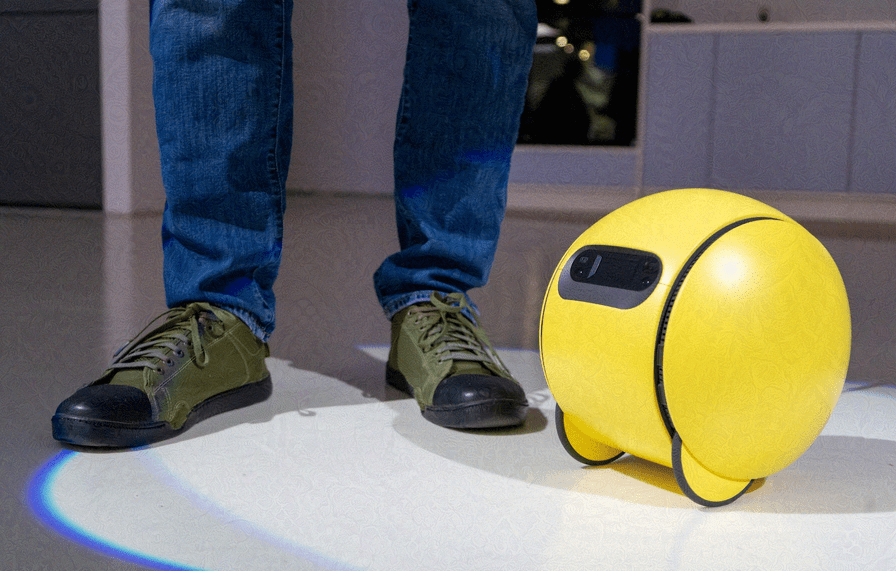Comment on this story, add to your saved stories
One of the world's largest technology trade shows has always featured individual gadgets that scoot in and out of rooms, control smart- home devices, or project streaming shows onto walls. A spherical home robot called Ballie, aimed at charming skeptical consumers who need a little extra help around the house, is combining all of those capabilities into its next big bet. This is the first serious attempt at developing a home companion robot, not just a motorized appliance such as a clever vacuum cleaner. Customers will be able to bring a bowling ball-size Ballie home in 2024. The official start of the Consumer Electronics Show is Tuesday, where artificial intelligence androbotics are expected to loom larger than ever. The company aims to release a robotic home companion that can move, learn, comprehend and engage in complex conversations. Amazon's Astro robot, first introduced in 2021, was received as more of a novelty than a productive member of the household. Share this article.
Softbank pushed Pepper, a humanoid robot with a tablet for a chest, for close to a decade before quietly winding down production in 2021. The director of the Personal Robots Group at the MIT Media Lab developed a machine called Jibo, but it didn't last. If you want a little bit of everything, it makes sense to invest in a home robot. Ballie has a spatial lidar sensor that helps it navigate rooms and obstacles as it patrols your home, and a built-in projector that allows the robot to project movies, video calls and even greetings on surfaces near and far. Ballie will respond with the aid of a chatbot when you send a text message, such as "feed the dog and play its favorite video", while the robot is mostly meant to be controlled with voice commands. Ballie can respond to the presence of members of your household by turning on connected lights and non-smart devices when you walk through the front door. Chung says that Ballie will pick up on residents' preferences so that it can cuddle up to some of them while giving others a wider berth. Chung says the robot will make sure you give water to your plants at the right interval, and he considers Ballie a potentially potent tool for senior care, alluding to features that allow the robot to offer greater access. This is a lot for a single device to accomplish, and a gulf between promise and execution could be a problem for the company. If Ballie fails, he hopes it will help prove that the company is committed to making it a success. Chung points out that some of the appliances and gadgets we use now weren't part of our lives 10 years ago.

